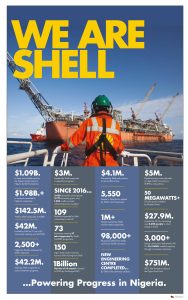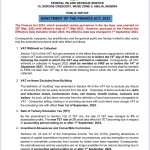The unicorn is a legendary creature. It is described as a beast with a single large, pointed, spiralling horn projecting from its forehead. The unicorn was depicted in ancient seals of the Indus Valley Civilization. It was mentioned by the ancient Greeks in accounts of natural history by various writers including Strabo, Pliny the Younger and others.
In European folklore, the unicorn is often represented as a white horse-like or goat-like animal with longhorn and cloven hooves (sometimes a goat’s beard). In the Middle-Ages and Renaissance, it was commonly described as an extremely wild woodland creature: a symbol of purity, grace, which could be captured only by a virgin.
In the encyclopedias, its horn was said to have the power to render poisoned water potable. It can thus heal sickness. In medieval and Renaissance times, the tusk of the narwhal was sometimes sold as unicorn horn. Today, the unicorn continues to hold a place in popular culture even in business.
Among venture capitalists, the unicorn is often used as a symbol of fantasy, a symbol of rarity. To venture capitalists, a unicorn is a company that is valued at $1 billion or more. That is a rarity. Because of this, every fintech startup is in a race against time to become a unicorn. In Nigeria, we have witnessed the arrival of the first unicorn. Interswitch has that singular honour of being the first unicorn in Nigeria.
While discussing with a venture capitalist recently, he told me that having a $1 billion does not represent the actual health of a company. He told me that valuation is what the company says it is. He then talked about “unicorns, down rounds and other companies that are just utter failures”. He said down rounds or funding round occurs when a company attracts a lower valuation less than it did in the previous round. Let us see the picture.
A fintech startup needs more capital. It needs capital to spread and deepen its operations.
A fintech startup needs more capital. It needs capital to spread and deepen its operations. It then discovers that the company’s valuation is lower than it was previously before the round of financing. This discovery forces the company’s management to sell its capital stock at a lower price per share. The main challenge remains for every startup. They are pursuing how to secure larger capital. Without capital, there is no business. That is one of the hurdles startups are struggling to overcome, all over the world.
Do you remember Konga? The acquisition of Konga is considered by some venture capitalists as down rounds. Other companies are seen as utter failures. The utter failures are companies that have not been able to attract the fund they require in order to fly. This is part of the world of venture capital. They understand it so well. If you are nursing the idea of a startup, you should understand it too.
Anyway, according to the Nigerian Communications Commission, NCC, there are over 700 active startups in Lagos. But not all of them have the funds to scale. Not all of them will get the fund to spread. Not all of them will get the fund to become unicorns. Some of them would die. Some of them would dry. Some of them would thrive.
For instance, the following companies got some funds recently from venture capitalists. Andela got $40 million. Terragon Group received $5million. Cars45 accepted $5million. Others are Rensource which received $3.5 million. Flutterwave got $10 million. Paystack collected $1.3 million.
These rounds of funding have demonstrated that there is huge potential in the Nigerian ecosystem. But we have a few success stories. One of these successes is SystemSpecs, the wholly-Nigerian software powerhouse behind Remita, HumanManager and Paylink. The company recently moved into its own purpose-built headquarters in Lagos.
Nevertheless, according to Ecosystem report and ranking 2017 produced by startup genome in collaboration with the Global Entrepreneurship Network (GEN), the Lagos startup ecosystem is worth $2 billion. Lagos has one of the highest rates of founders who have an undergraduates degree (59%) and those that have a technical background (93%).
But all of these have not been able to disrupt the industry. Sean Burrowes, the Chief Operating Officer of Ingressive, Africa’s premier ecosystem the architect told me that the fintech companies “are doing the same thing”. Burrowes expects disruption in different areas, not necessarily “payment or remittances”.
For Nigeria to get more unicorns, the fintech ecosystem requires huge capital investments. This will help the startups to become unicorns and not down rounds or utter failures!
In an interview with Forbes Africa recently, Emilia Asim-Ita, CEO, AML Practice, a content, talent and resource advisory firm, said the startup ecosystem in Nigeria is stagnating. She could not give empirical evidence. She, however, pointed out that industry or sector that is not growing, that has not disrupted any new industry, that has not recorded any significant growth and sustainability, or even some of its biggest ideas cannot be growing. “That is why I would say that it is stagnant.”
The industry is stagnant because the “right infrastructure to support the startups is not available,” Seyi Tinubu, founder and CEO of Loatsad Promo media explained. The infrastructure bottleneck is another story for another day.
But the figure from the National Bureau of Statistics [NBS] has indicated that Nigeria has 200 million people. This shows that Nigeria is still the biggest market; as such, Nigeria is the only market in Africa that is likely to produce more unicorns.
For Nigeria to get more unicorns, the fintech ecosystem requires huge capital investments. This will help the startups to become unicorns and not down rounds or utter failures!
*Rarzack Olaegebe ([email protected])













